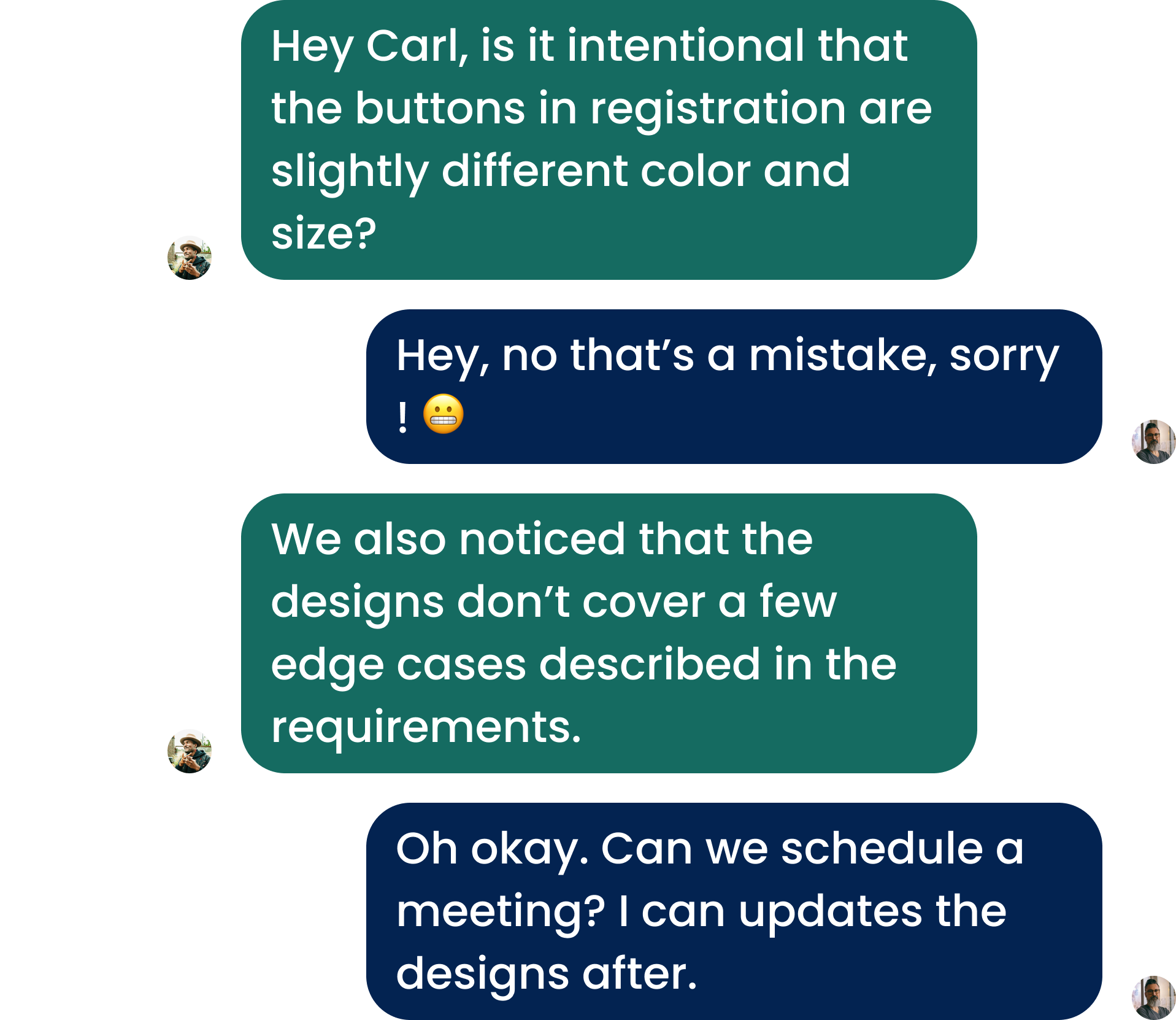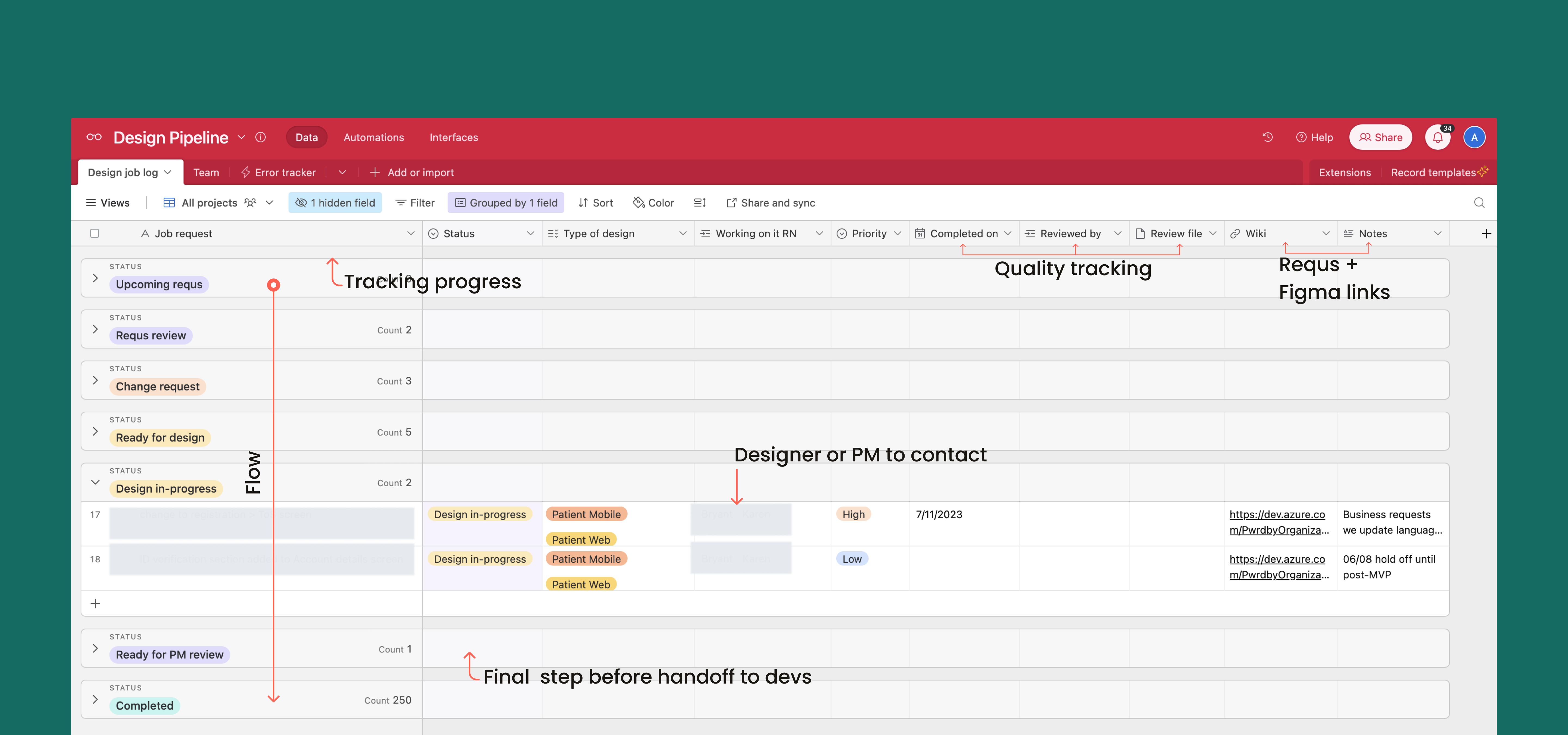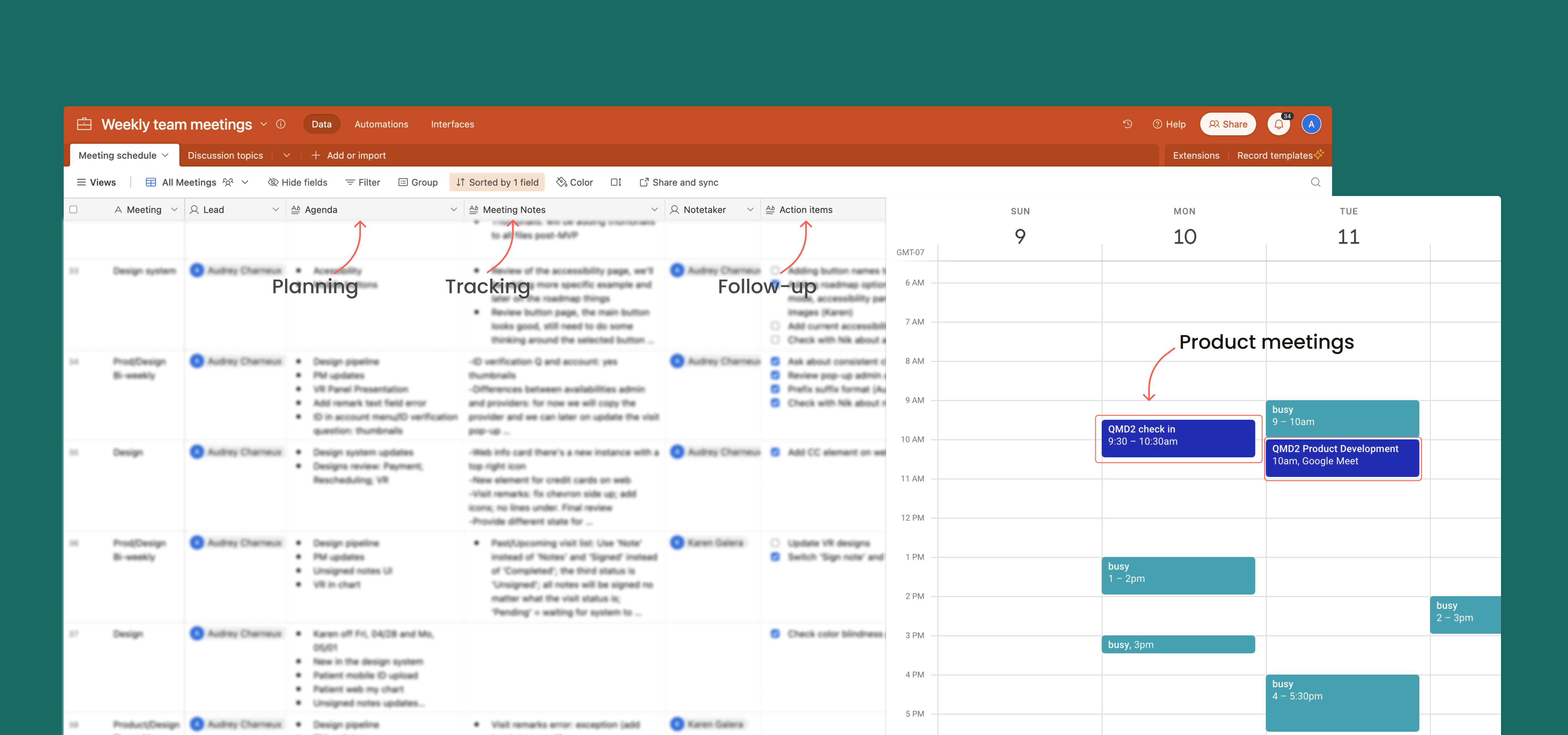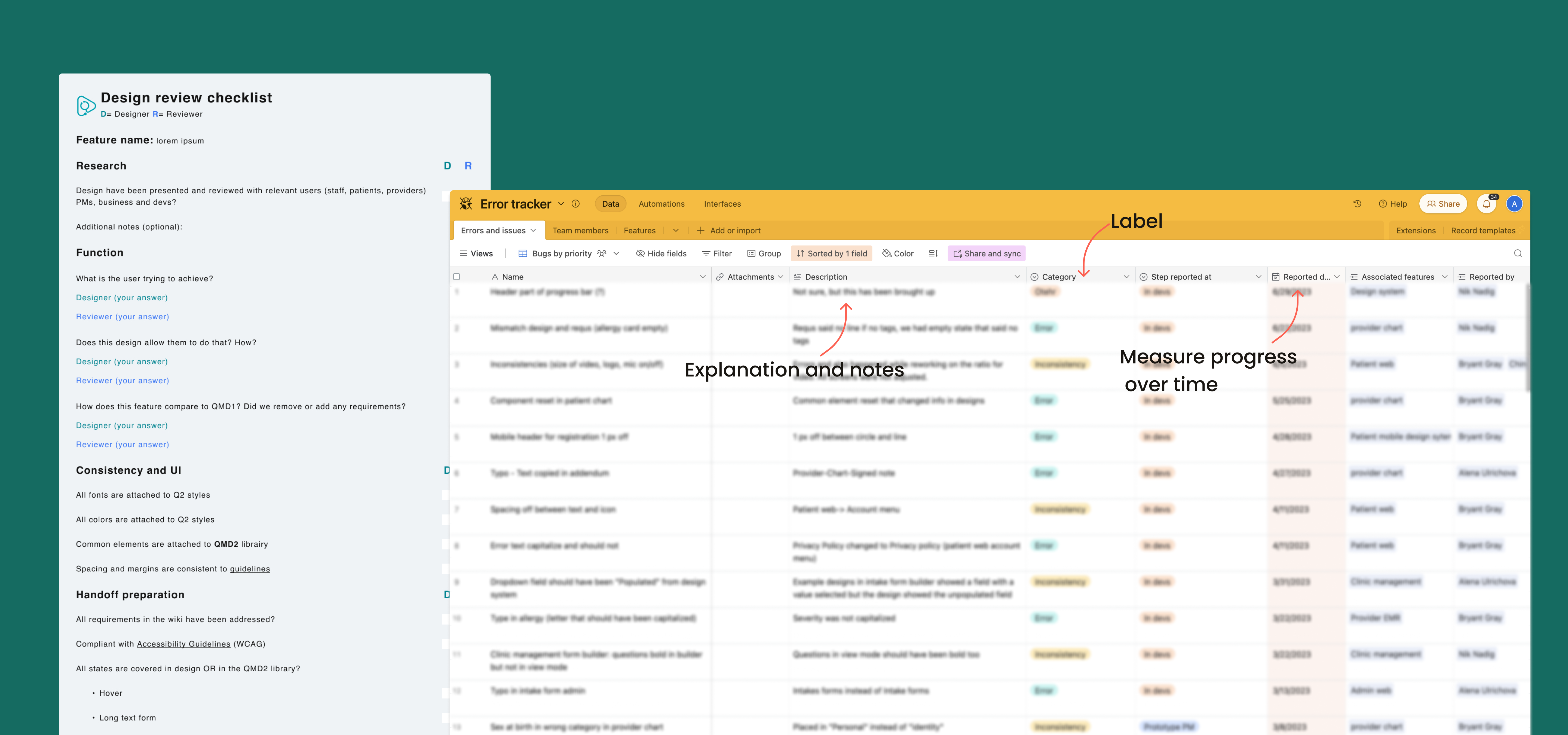
Saving valuable development time by reducing design errors by 90%
This case study is about
QuickMD
A telehealth company. They connect over a 1000 patients/day to providers that can help them with their health concerns.
The problem
I was brought onto this project because issues with design quality were costing engineering and design a significant amount of time.
My goal: How might we...
- Measure and improve design quality?
- Decrease the number of failed sprints caused by design quality?
- Increase development speed?
*The information presented here is a summary. Explore the full case study on Figma.

What I did
my Role
Product design lead
Process highlights
- Conducted interviews with each team to get a better understanding of the problem
- Led workshops to brainstorm solutions with all teams
- Presented and implemented solutions with a revision plan
- Started introducing styles and building a design system in Figma
- Tracked impact of the solutions and tweaked gradually over 1 year period
Tools
Figma; Aritable; Interviews
Team credits
Nik Nadig (CTO), Courtney Crockett (Product Designer),
Alena Ulrichova (Product Manager), Bryant Gray (Product Manager)
When I notice slightly different fonts or colors, it's hard for me to know if that's intentional or not. Because of the time difference, it sometimes takes 24hrs for me to get an answer.

Developer
Designer
I'm often unsure about the status of the design requests. I lose a lot of time looking for designs on Figma or waiting for an answer on Slack.

Product manager
Designer
Outcomes

1. Shared Design process
How?
- Tracked status and priority
- Included related links to Figma and Azure
- Built-in design quality tracking
Impact:
- Decreasing time loss due to confusion
- More efficient sprint planning
- Specific design feedback for each designer

2. Consistent communication
How?
- Consistent meeting 2X/Week
- Discussed requirements, ideation, designs, etc
- Identified and tracked action items
Impact:
- Saving design time that would have been spent on updating designs later in the process
- Ensuring follow-up on important action items

3. Improving and tracking design quality
How?
- Built and implemented a design system
- Introduced a peer review system
- Added design quality tracking to the process
Impact:
- An increase in design consistency
- A decrease in design errors
- An increase in development speed
Impact 👊
60-90% ↘️
Decrease in design inconsistencies and errors.
20% ↗️
Increase in development speed.
0
Failed sprints caused by design quality issues.